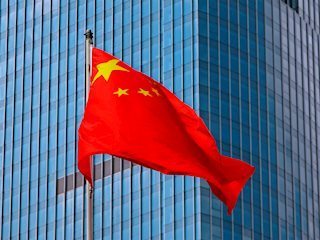People's Bank of China argues Bitcoin and stablecoins threaten financial security and social stability
|
- The People's Bank of China (PBOC) explains its stand on Bitcoin and stablecoins, stating that these are speculative tools that threaten financial security and social stability.
- Crackdown on stablecoins continues before the digital renminbi pilot at the Beijing Winter Olympics.
- Further steps will be taken if the use of Bitcoin and stablecoins as payment tools for money laundering and illegal economic activities continue.
The deputy governor of the People’s Bank of China has expressed concerns about the use of stablecoins. He announced that the bank is already taking measures to tackle the threat posed by stablecoins.
China’s crackdown on stablecoins
Fan Yifei, the deputy governor of the PBOC, stated the use of stablecoins like Tether (USDT) brings risks and challenges to the international monetary, payment, and settlement system. Yifei maintains that stablecoins have become a speculative tool for money laundering.
Global payment giants like Visa would disagree with China’s stand on stablecoins. The multinational financial services corporation recently stated that,
...Stablecoins are on track to become an important part of the broader digital transformation of financial services, and Visa is excited to help shape and support that development.
According to several media outlets, key players in the Chinese cryptocurrency industry are promoting the theory that the crackdown on stablecoins in the nation may be a tactical move ahead of the launch of further pilots for institutional and commercial usage of the digital renminbi. This theory has its foundation in the past when the central government went after Google, Facebook, and other sites before launching a state-owned version of these firms.
Digital RMB pilot for 10 million whitelisted users
Yifei mentioned in his statement that China is currently observing and studying private digital currencies that are not issued by the central bank. However, they are vigorously promoting both versions of the digital renminbi ahead of the Beijing Winter Olympics. The one issued to institutional entities such as commercial banks and the one issued to the public for daily transactions.
PBOC’s deputy governor mentioned that China has attained some consensus on the influence of wholesale digital renminbi and studies reveal that it may have no impact on the existing financial system. The same cannot be said for its retail version since it is not clear yet if it may cause financial disintermediation or weaken the monetary policy. This is the key reason why the government is running pilots for whitelisted users only.
Currently, over 10 million whitelisted users are in queue to participate in the pilot of the digital renminbi at the Beijing Winter Olympics.
Yifei said,
As far as I know, the number of whitelist users has reached 10 million. I hope you can try it if you have the opportunity. The Beijing Winter Olympics scene is the key area of the next pilot. In this process, everyone here may enjoy such conveniences. If you have any problems in use, you can also report to us, and we will make adjustments in time.
Information on these pages contains forward-looking statements that involve risks and uncertainties. Markets and instruments profiled on this page are for informational purposes only and should not in any way come across as a recommendation to buy or sell in these assets. You should do your own thorough research before making any investment decisions. FXStreet does not in any way guarantee that this information is free from mistakes, errors, or material misstatements. It also does not guarantee that this information is of a timely nature. Investing in Open Markets involves a great deal of risk, including the loss of all or a portion of your investment, as well as emotional distress. All risks, losses and costs associated with investing, including total loss of principal, are your responsibility. The views and opinions expressed in this article are those of the authors and do not necessarily reflect the official policy or position of FXStreet nor its advertisers.